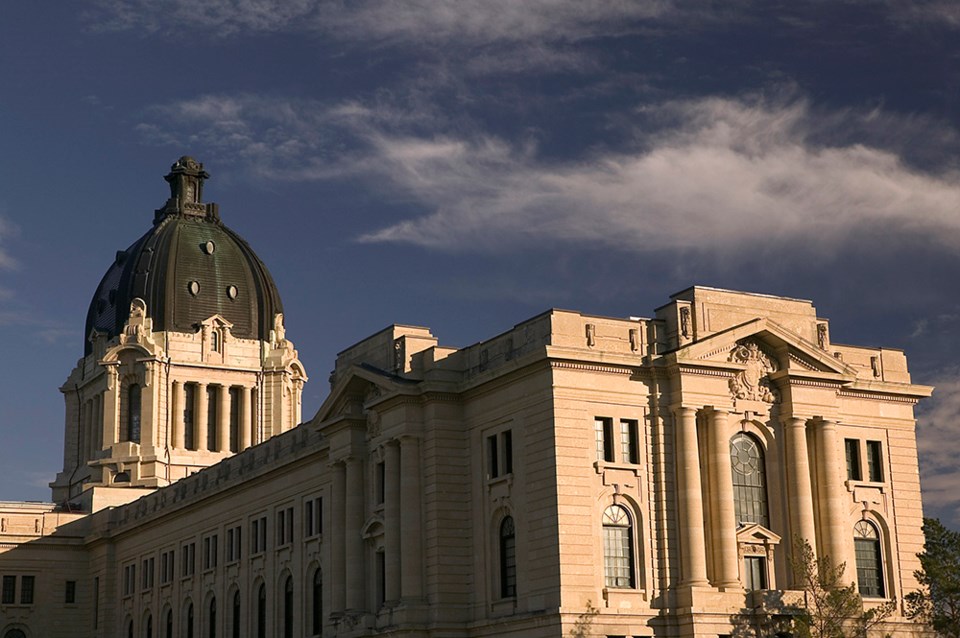REGINA — Saskatchewan's budget day has resulted in a variety of reactions to Premier Scott Moe's plans for 2022-23 — some positive, some not, some mixed.
The Agricultural Producers Association of Saskatchewan is supportive of the provincial government’s 2022-23 budget for the Ministry of Agriculture.
APAS says it is appreciative of the $338.5 million investment to fund business risk management programs. Among the programs included in the budget are Crop Insurance, AgriStability, AgriInvest, and Western Livestock Price Insurance. The producers group is also appreciative of new investments in research, irrigation, and PST measures to support agriculture. Moving forward, APAS would like to see the provincial government continue to invest in programs such as AgriInvest, AgriStability and AgriRecovery to help producers through challenging times, be it economically or due to drought.
The Saskatchewan Media Production Industry Association also has good things to say, saying it is pleased the budget is boosting its grant program for film and television by $8 million for 2022-23, which means the Production Grant Program, operated through Crown corporation Creative Saskatchewan, will have $10 million available for the 2022-23 fiscal year.
Lioz Bouganin, President of the SMPIA Board of Directors, issued this statement, “We want to say ‘thank you’ to the Saskatchewan Government for expanding Creative Saskatchewan’s funds to cover more screen-based productions. This incremental release of provincial funds will be a catalyst providing greater opportunities for our producers to attract new private and federal investment dollars.”
“We applaud the government for this investment,” said Erin Dean, CEO of Creative Saskatchewan. “Productions are a multi-faceted endeavor, built around labour with the potential to create hundreds of new jobs, ranging from cinematographers, assistant directors, electricians, carpenters, sound engineers, composers, editors, and more. This goes beyond contributing to Saskatchewan’s economic recovery, it’s truly improving the livelihoods of Saskatchewan residents.”
Creative Saskatchewan says there are many spin-off benefits to the investment, which will attract more and larger projects to the province.
But not everyone is happy.
“This budget brings no relief for everyday people who are struggling to make ends meet. The year-over-year increase in Saskatchewan’s consumer price index was 4.7 per cent for February, but wages in this province are not keeping up,” said Judy Henley, president of CUPE Saskatchewan. “We have the lowest minimum wage in the country, and too many workers – especially in our lowest paid sectors like community-based organizations – have gone years without a meaningful wage increase to keep up with the rising costs.”
CUPE is calling for the implementation of a progressive tax system to ensure higher income residents and corporations pay their fair share of taxes, according to its budget reaction statement. This should include the introduction of new personal income tax brackets for higher incomes and a wealth tax for the rich, says CUPE.
Some reactions have been mixed.
The Saskatchewan Medical Association said it welcomes budget initiatives that support the recruitment and retention of physicians, begin to tackle the surgical backlog, and provide resources to address the ongoing challenges the pandemic is placing on a strained health care system.
The budget allocates $6.44 billion to the health portfolio, an increase in spending of 5.2 per cent, with $95 million allocated for ongoing pandemic spending and $21.6 million to address the surgical waitlist. SMA president Dr. Eben Strydom said. “The step announced today to address the backlog is welcome, but it is only a first step in providing relief for patients whose procedures have been postponed. Physicians will be pleased when their patients receive the care they need.”
SUMA said it was pleased to see a $10.8 million investment in EMS, in 27 communities, as well as a focus on recruiting additional healthcare professionals for Saskatchewan’s hometowns. But, says SUMA, more funding to address access to health and mental health and addictions services in the province is needed.
SUMA also welcomed the continued investment in Saskatchewan’s hometowns through Municipal Revenue Sharing, but was disappointed with the reduction in funding. Municipal Revenue Sharing for the 2022-23 year is set to be approximately $262 million, a reduction from the 2021-22 budget.
The Saskatchewan Teachers’ Federation expressed disappointment that the government has again chosen not to make education funding a priority. An increase of 4.7 percent was required to simply maintain the status quo of programming and services, said STF in its statement, noting the budget results in a more than three per cent cut to K-12 operational spending.
“These cuts will directly impact students across the province,” said STF President Patrick Maze. “School divisions will be left with no choice but to cut programs and services that are already underfunded and insufficient to meet students’ needs.”
The Canadian Taxpayers Federation also says it is disappointed that the 2022 Saskatchewan budget continues to increase the provincial debt and fails to provide tax relief.
“The Saskatchewan budget projects soaring revenues, but the government is planning to spend every penny and still borrow another $463 million,” said Todd MacKay, Prairie Director for the Canadian Taxpayers Federation. “If a family ran up their credit cards during tough times and then won the 50-50 draw at a Rider game, they wouldn’t spend the windfall and keep borrowing, yet that’s exactly what the Saskatchewan government is doing.”
Also disappointed is the Saskatchewan Heavy Construction Association.
“Our association is extremely disappointed with what has come out of this budget,” said Shantel Lipp, SHCA president. “There is no new funding for projects for this spring which leaves the industry behind when there is such an urgent need for highway and infrastructure funding.”
Funding announced in the provincial budget for highways and infrastructure projects reflects a status quo budget with most projects already awarded and tendered in the fall of 2021.
Saskatchewan Liberal leader Jeff Walters is calling the provincial budget disappointing and insufficient.
“Premier Moe had an opportunity to show vision,” stated Walters. “Instead, it is more of the same. In a time that needs him to hit a home run, he continues to play small ball.”


